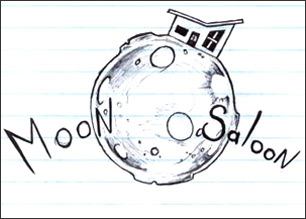Mourning Bowie, by Mike Spreier
There have already been a lot of words written about David Bowie since his passing…his life, his death, his legacy. More importantly, millions of people have dug out their old Bowie LPs, CDs, MP3s or whatever their format of choice is (I am imagining at least one die-hard fan out there with a reel-to-reel deck listening to the ’72 Magtec release of Space Oddity) and are listening to their favorite Bowie tunes again. According to Spotify, streams of Bowie’s music jumped 2,700% the day after his death was announced, and on the Australian charts, his newest album Blackstar has risen to number one, while the second, third and fourth positions are all taken by Bowie best-of compilations. Clearly, he has touched millions of people and several generations with his music.
It seems like every musician I’ve even known has been a major Bowie fan. And I mean the type of fan who will get into a fist fight over the supremacy of Aladdin Sane versus the Berlin Trilogy. They have copies of every album from the self-titled David Bowie up through Scary Monsters, and probably even Let’s Dance or Tonight, though the latter may just be a cassette tape that lies forgotten somewhere in the back of the Ford Ecoliner. But Ziggy? Yeah, that’s on the 180 gram vinyl Japanese import…that one is sacred.
I have to admit that I’ve never really been one of those guys, though I’ve been surrounded by them throughout my life. I didn’t really need to buy the entire pre-1980 Bowie catalog because it was always just there. And the stuff I was listening to in the early 80s, like Joy Division and Bauhaus, certainly owed its debt to Bowie. His music and influence was unescapable.
Then something happened, and that something was Let’s Dance, Bowie’s biggest commercial hit. A new legion of fans flocked to the album, while those of us with less mainstream taste tried to convince ourselves that Bowie hadn’t completely lost his cool. But he certainly didn’t help his case when he released the execrable 20-minute long Jazzin’ for Blue Jean video to promote the new single from his next album, Tonight. I remember MTV hyping it heavily before it aired, and gathering with friends to watch the initial showing, only to find ourselves dumbstruck by the end. The only redeemable thing in the entire twenty minutes was the bit of “Warszawa” playing in the background during one scene, and that was mostly just a slap in the face, a reminder of Bowie’s former brilliance. After this, I would look at every future Bowie release with more than a little apprehension.
Even Bowie would look back at this period as his creative nadir. The enormous success of Let’s Dance pressured him into continuing with the commercialized pop sound he was exploring, but whatever energy he once had for the genre seemed to implode.
It was at this point that I first saw him live in concert, during the Glass Spider tour in 1987. There was something terribly off about the whole show, beginning with the rather out of place opening act, Siouxsie and the Banshees. Whatever charm Siouxsie might conjure up in a small nightclub was completely lost in the enormous Anaheim Stadium. And when Bowie took the stage, supported by the inexplicable choice of Peter Frampton as guitarist, everything seemed to fall flat. I remember sneaking our way from our distant seats to find a place closer to the stage about halfway through the set, but the more intimate proximity didn’t make a difference. The entire show was a forgettable disappointment.
Even Bowie knew something was wrong. He soon formed Tin Machine, and they released two albums that managed to find the energy that had been sorely lacking in his more recent solo efforts. While the Tin Machine era was met with mixed reviews, the material still holds up very well. It was a critical reformation period in Bowie’s career, necessary to set the stage for future triumphs.
One of these triumphs came in 1995 when he toured with Nine Inch Nails. This was the second and last time I would see Bowie live, and it completely redeemed the previous event. The show was unique, having no break between Trent’s band and David’s, instead they swapped musicians in and out, slowly transforming from Nine Inch Nails to David Bowie. The highest point was in the middle, as Bowie and Reznor combined to play “Scary Monsters.” The synergy between the two front mean was electrifying, and one of the greatest concert moments I’ve ever seen.
Bowie had completed some strange artistic loop at this point. His next albums would show the influence of people like Trent Reznor, who were themselves inspired by Bowie. While he would never quite return to the commercial success of Let’s Dance, or the artistic importance of his pre-1980s work, he continued with another half dozen albums that would show flashes of brilliance, such as “I’m Afraid of Americans” from the album Earthling. Which, not coincidentally, was co-written by Brian Eno, who collaborated with Bowie on much of his best material throughout his career.
In the 2000s, Bowie seemed to slowly fade from view. From 2000 until 2015 he only released three albums, without much fanfare, until the 2016 release of Blackstar. Released on his 69th birthday, Blackstar quickly received surprisingly positive reviews. And then Bowie had to go and to perhaps the most Bowie-esque thing of his career by dying three days after its release.
Blackstar was intended by Bowie to be his own eulogy, and will take its rightful place as one of his greatest albums. Certainly it is his darkest work, though it crackles with moments of breathtaking energy and winks at other moments with Bowie’s sly humor. It’s a heavy, reflective album that reminds us of everything fantastic that Bowie ever did throughout his career. And it’s the album that only a dying Bowie could make.
There was no need for Bowie to cement his position as one of the world’s greatest rockstars with yet another fantastic album. His legend was already secure and relatively untarnished by even his most forgettable works. But he did it anyway. He gave us another masterpiece…one of the most poignant albums ever…as his way of saying his final goodbye.
That’s Bowie for you. Unpredictable and spectacular to the very end.
David, you will be missed.
Follow Mike Spreier on Twitter: @AlchemistCorpse
Facebook: facebook.com/mike.spreier
Periscope: @AlchemistCorpse
Instagram: mike_spreier
Please follow The New American Media on Twitter @American_Media_
Please search “The New American Media” on Facebook & “Like” our page.
Please subscribe to our www.YouTube.com/TheNewAmericanMedia page
& Check out our home page at: www.TheNewAmericanMedia.com




Speak Your Mind